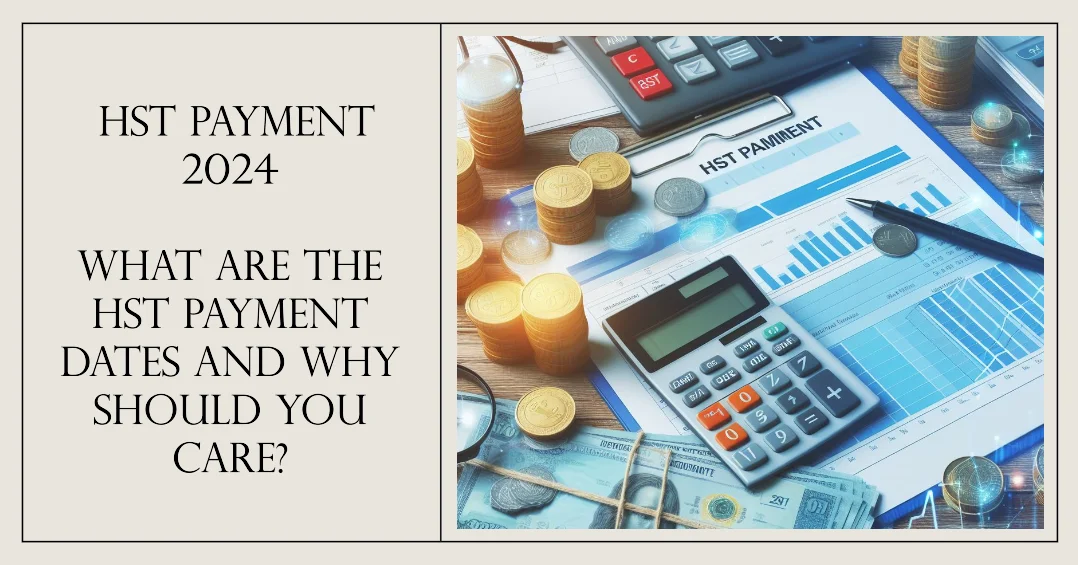For Advertising Contact Us
HST Payment 2024 – What Are the HST Payment Dates and Why Should You Care?

You may be wondering about the HST payment dates for 2024 and why they are important for you to know. Understanding the schedule for your Harmonized Sales Tax payments is crucial for business owners and individuals alike to avoid any penalties or interest charges. In this guide, we will outline the HST payment dates for 2024 and explain why staying on top of these deadlines is vital for your financial planning and compliance with tax regulations. Stay informed and organized to manage your HST payments effectively.
Types of HST Payments
Before plunging into the details of HST payment dates, it’s crucial to understand the different types of HST payments that businesses may need to make. There are primarily three types of HST payments: Monthly, Quarterly, and Annual. Each has its own schedule and implications for businesses. Perceiving the differences between them is imperative for proper financial planning and compliance.
| Monthly HST Payments | Due every month |
| Quarterly HST Payments | Due every quarter |
| Annual HST Payments | Due once a year |
Monthly HST Payments
Clearly, businesses that have a high volume of sales may be required to make monthly HST payments. This frequency ensures that the government receives a regular stream of tax revenue throughout the year.
Quarterly HST Payments
Payments for quarterly HST payments are made every three months, providing businesses with a bit more breathing room compared to monthly payments. This schedule is often based on a business’s fiscal year and sales volume.
With quarterly HST payments, businesses need to calculate their tax obligations for each quarter accurately and make the necessary payments by the due dates set by the government.
Annual HST Payments
With annual HST payments, businesses have the benefit of making a single payment for the entire year. This can simplify the process for small businesses with lower sales volumes or irregular revenue streams.
Understanding the implications of each type of HST payment is crucial for businesses to ensure compliance with tax laws and maintain their financial health.
Step-by-Step Guide to HST Payments
If you are a business owner in Canada, understanding how to manage your HST payments is crucial. This step-by-step guide will walk you through the process, from registering for an HST account to calculating your payments and meeting the payment deadlines.
| 1. Registering for an HST Account | 2. Calculating Your HST Payments |
Registering for an HST Account
Some businesses are required to register for a Harmonized Sales Tax (HST) account with the Canada Revenue Agency (CRA). This is necessary if your business’s worldwide sales exceed $30,000 in a single calendar quarter or in four consecutive calendar quarters. Once registered, you will need to start collecting and remitting HST on eligible goods and services.
Calculating Your HST Payments
Even though the HST rate varies by province, the process of calculating your HST payments remains consistent. To calculate the amount of HST owing, you need to determine the total amount of taxable sales and expenses subject to HST. Then, subtract the Input Tax Credits (ITCs) you are eligible for to arrive at the final amount owed to the CRA.
For instance, if your taxable sales amount to $10,000 and your eligible ITCs total $2,000, your net HST payable would be $800 ($10,000 – $2,000 = $8,000 * 13%). It is important to keep accurate records and ensure that you are collecting and remitting the correct amount of HST to avoid penalties and interest charges.
Tips for Timely HST Submissions
Not submitting your HST payments on time can result in penalties and interest charges, so it’s crucial to stay on top of your remittances. Here are some necessary tips to help you ensure that your HST submissions are made in a timely manner:
- Keep track of all HST payment due dates to avoid missing any deadlines.
- Set up reminders or alerts to notify you of upcoming payment deadlines.
- Regularly review your financial records to confirm the accuracy of your HST calculations.
Organizing Your Business Records
For efficient HST submissions, it’s vital to keep your business records organized and up to date. Ensure you maintain detailed records of all sales, expenses, and HST collected to make the filing process smooth and accurate.
Utilizing Payment Reminders and Tools
If you struggle to remember your HST payment due dates, consider utilizing payment reminders and tools available through accounting software or online platforms. These tools can help you stay on track with your remittances and avoid late payment penalties.
Timely Utilizing Payment Reminders and Tools
Timely payment is key to maintaining a good standing with the tax authorities and avoiding unnecessary fees. Take advantage of payment reminders and tools to ensure that your HST submissions are submitted accurately and on time.
Factors Affecting HST Payments
Despite the standardized nature of HST payments, various factors can impact the amount and timing of these payments for businesses. Understanding these factors is crucial for effective financial planning and compliance with tax regulations.
Changes in Business Revenue
Now, fluctuations in business revenue can directly affect HST payments. A sudden increase in sales may result in higher HST obligations, while a decline in revenue could lead to lower payments. It is vital for businesses to monitor their financial performance regularly and adjust their HST payments accordingly to prevent any potential issues with tax authorities.
Government Policy Updates
There’s a constant need for businesses to stay informed about government policy updates that may impact HST payments. Any changes in tax rates, thresholds, or regulations can have significant implications for businesses’ tax liabilities. It is crucial to regularly review and adapt to these policy changes to ensure compliance and optimize tax planning strategies.
A proactive approach to staying updated on government policy changes can help businesses avoid potential penalties or issues with tax authorities. Monitoring official announcements, consulting with tax professionals, and attending relevant workshops or seminars can provide valuable insights into any upcoming policy updates that may affect HST payments.
Pros and Cons of Different Payment Frequencies
Your decision on how frequently to make HST payments can have a significant impact on your business’s cash flow and financial planning. Here are some pros and cons to consider:
| Payment Frequency | Pros and Cons |
| Monthly | Allows for more precise budgeting and cash flow management, but may require more frequent administrative work. |
| Quarterly | Less administrative work compared to monthly payments, but cash flow can be more unpredictable. |
| Annually | Simplifies the payment process and reduces administrative burden, but can lead to large lump sum payments that strain cash flow. |
Evaluating Monthly Payment Plans
Now, when considering monthly payment plans, it’s imperative to weigh the benefits of better cash flow management against the potential administrative challenges of more frequent payments. Be sure to analyze your business’s financial situation and capabilities before committing to a monthly payment schedule.
Assessing Quarterly and Annual Schedules
There’s a balance to strike when evaluating quarterly and annual payment schedules. Quarterly payments offer a middle ground between monthly and annual schedules, providing a compromise between administrative work and cash flow stability. Annual payments, on the other hand, streamline the process but require careful financial planning to ensure you can cover the larger lump sum when it’s due.
It’s crucial to analyze your business’s financial performance, seasonal fluctuations, and administrative capacity to determine the most suitable HST payment frequency for your specific needs. Consulting with a financial advisor or accountant can also provide valuable insights to make an informed decision.
Conclusion
The HST payment dates for 2024 are important for individuals and businesses to keep track of, as missing these deadlines can result in penalties and interest charges. By understanding the payment schedule and planning ahead, you can ensure that you are prepared to fulfill your tax obligations on time. Staying informed about HST payment dates and making timely payments can help you avoid financial implications and maintain good standing with the tax authorities. It is crucial to prioritize these dates to avoid any potential repercussions on your finances and business operations.







